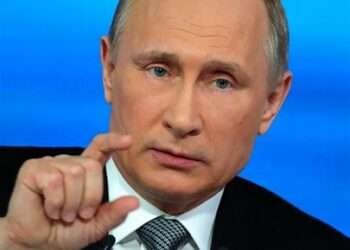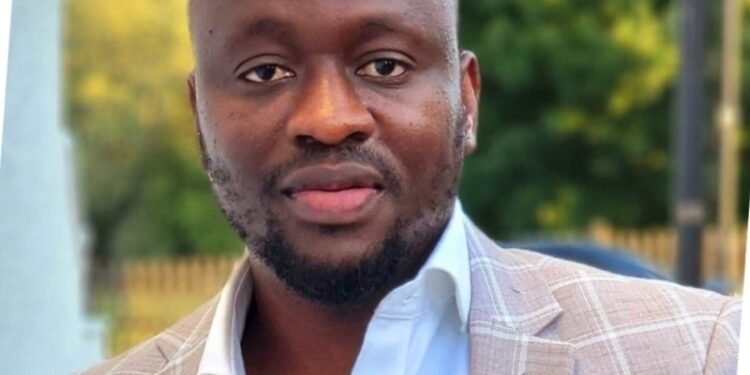In Europe, a nation fights for its identity, its dignity, and its very existence. Ukraine, a country rich in history and culture, finds itself under siege.
A recent UN report detailing Russia’s atrocities in occupied Ukraine serves as a chilling reminder of the depths that Russia is willing to go.
Since Russia’s invasion in February 2022, Ukraine has endured a relentless onslaught on its sovereignty and human rights.
The report’s findings, based on over 2,300 interviews, paint a harrowing picture of widespread torture, arbitrary detention, and the suppression of Ukrainian identity.
These are not mere violations of law; they are crimes against humanity, perpetrated with impunity by a regime that seeks to crush dissent and subjugate an entire nation.
According to the UN report, Russia has tortured and arbitrarily detained people in occupied Ukraine, creating a “climate of fear” and suppressing Ukrainian identity.
Since invading in February 2022, Moscow has seized large swathes of southern and eastern Ukraine.
In September 2022, Russian President Vladimir Putin announced the annexation of the regions of Kherson, Zaporizhia, Luhansk and Donetsk in a move rejected by Kyiv and most of the international community.
The report stated that Russia has imposed its “language, citizenship, laws, court system, and education curricula on the occupied areas,” while suppressing a Ukrainian identity.
Russia had tried to suppress Ukrainian identity among children, replacing the curriculum in schools with a Russian one which sought to “justify” Moscow’s invasion, the report added.
The Russian playbook in occupied Ukraine is insidious. By imposing its language, laws, and education curricula, Moscow seeks to erase Ukrainian culture and history, replacing them with a version that justifies its aggression.
The manipulation of school curricula to indoctrinate children with propaganda is a particularly vile tactic, reminiscent of totalitarian regimes of the past.
However, Russia’s assault on Ukraine goes beyond the classroom. It extends to the streets, where peaceful protests are met with brute force, and to the airwaves, where Ukrainian media is silenced and dissenting voices are suppressed.
“From the onset, Russian armed forces, acting with generalised impunity, committed widespread violations, including arbitrary detention of civilians, often accompanied by torture and ill-treatment,” the report said.
Peaceful protests have been meet with “force” from the Russian army, which has restricted free expression and pillaged homes and businesses, it said.
The report said Moscow has blocked access to Ukrainian media and phone networks in the regions in an effort to control information.
By controlling information and communication networks, Moscow seeks to isolate Ukrainian communities and break their spirit of resistance.
UN high commissioner for human rights, Volker Türk opined, “The actions of the Russian Federation have ruptured the social fabric of communities and left individuals isolated, with profound and long-lasting consequences for Ukrainian society as a whole.”
Ukraine has accused Moscow of widespread war crimes in its occupied regions. The Kremlin denies any wrongdoing, calling its takeover of the regions a “liberation.”
Speaking before the release of a comprehensive UN Human Rights Monitoring Mission in Ukraine (HRMMU) report on the territories Russia occupied in its full-scale invasion since 2022, the mission’s head, Danielle Bell, said Russia’s breaches of rights there were used to terrify local residents into co-operating.
“These combined actions of censorship, surveillance, political oppression, repression of free speech, movement restrictions … created a climate of fear in which the Russian Federation could systematically dismantle the Ukrainian systems of government and administration.”
Danielle Bell
Bell revealed that there had been an initial phase of rights violations, including killings, torture and arbitrary detention of those perceived to be linked to Ukrainian security forces or those believed to be supporting Ukraine.
That was followed by campaigns against freedoms of movement, assembly and expression, she said. These were followed by a push to change all major state institutions into Russian ones, something Bell said violated international humanitarian law.
Bell added that Russia aggressively pushed people to take Russian citizenship: people could obtain services such as healthcare, social security or rented housing only with a Russian passport.
It is important to note that the consequences of Russia’s actions are not limited to the present moment; they will reverberate for generations to come if not checked.
READ ALSO: Trump To Be Second Grover Cleveland?






















